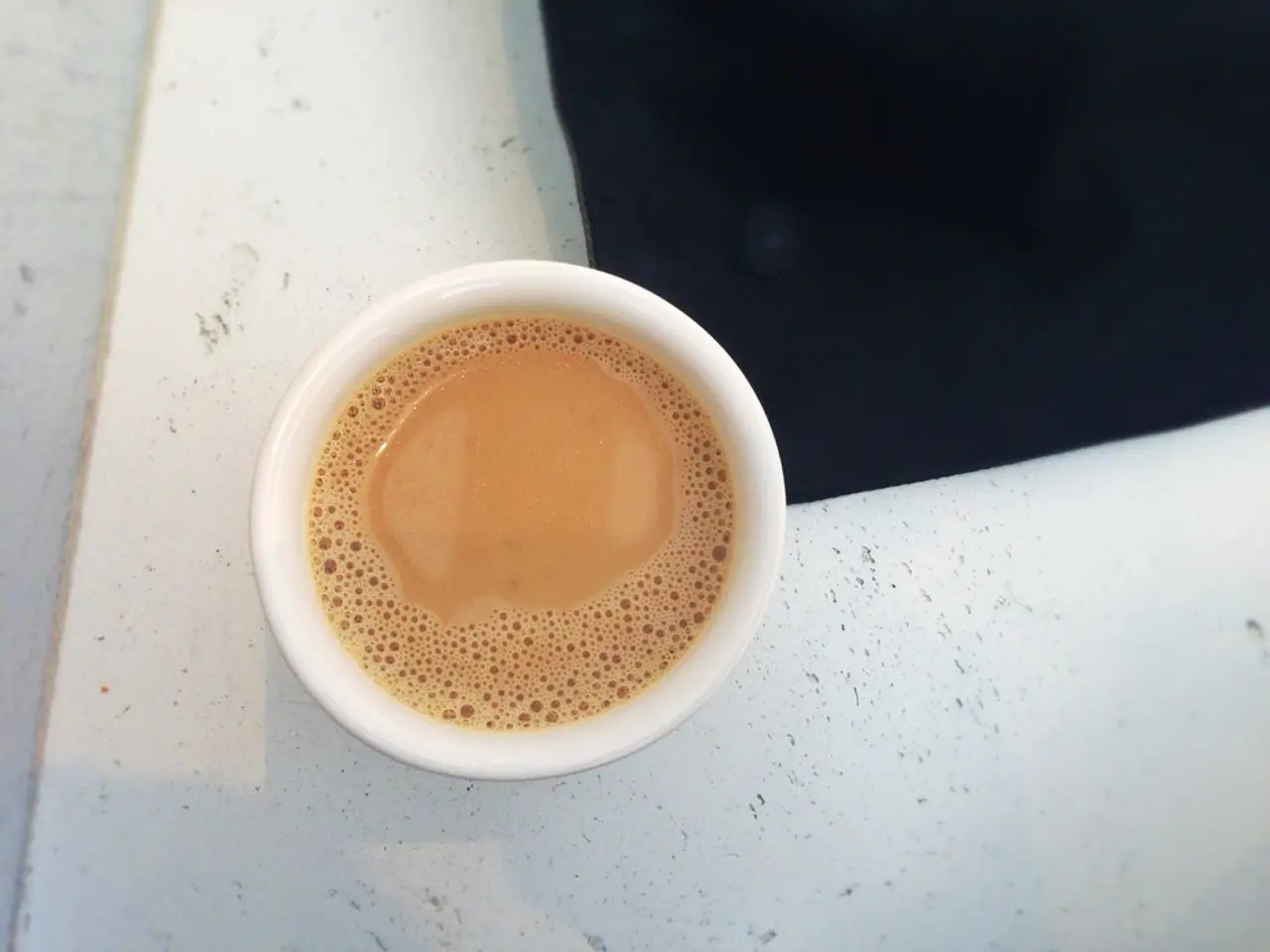Tourist collapses following ingestion of Bubble Tea.
A Russian tourist vacationing in Sharm El Sheikh, Egypt, was recently hospitalised after fainting on the beach. The incident has raised concerns about the potential risks associated with Bubble Tea, a popular drink known for its high sugar and caffeine content.
The tourist, who was on holiday with her husband and son, tried the drink while exploring local cuisine. After consuming the beverage, she felt unwell and soon after fainted into her husband's arms. People nearby called an ambulance, and medics carried her to the clinic on a stretcher.
While adverse reactions to the high sugar and caffeine content in Bubble Tea are uncommon, they do exist due to the beverage’s nutritional composition. Bubble tea typically contains high levels of sugar, often 30 to 60 grams per serving, which can exceed the recommended daily added sugar intake, leading to rapid blood sugar spikes and possible glycemic disturbances[1][3]. The tapioca pearls, a key ingredient, mostly add empty starch calories with little nutritional value, and they may also contain preservatives or sulfites to which some individuals can be sensitive or allergic[1].
Regarding caffeine, many Bubble teas contain tea bases such as black or green tea, which have natural caffeine. While moderate caffeine intake is generally safe for healthy adults, excessive caffeine, especially combined with high sugar, can cause symptoms like jitteriness, palpitations, or in rare cases, fainting due to a sudden blood pressure drop or arrhythmia[2]. Children and caffeine-sensitive individuals are advised to limit or avoid caffeinated Bubble tea because caffeine is a stimulant and can disrupt sleep, behavior, and hydration[2].
Sudden loss of consciousness (syncope) as an acute adverse event from Bubble tea alone is not well-documented in the literature or statistics. However, people with underlying conditions such as diabetes, caffeine sensitivity, or starch intolerance might be at slightly higher risk of adverse reactions[1]. Additionally, improper preparation or contamination of ingredients (like inadequately prepared tapioca) could cause digestive issues, which indirectly affect well-being[1].
The tourist believes that the Bubble Tea she consumed caused her condition to deteriorate. Further investigations may be required to confirm the exact cause of her condition. To minimize risks, consumers are advised to opt for reduced sugar versions, smaller sizes, and caffeine-free or lower-caffeine options, especially for those sensitive to sugar or caffeine[3]. If an individual experiences symptoms such as fainting after consuming Bubble Tea, medical evaluation is recommended to rule out other causes.
This incident serves as a reminder for tourists to be aware of the potential effects of unfamiliar foods and drinks, such as Bubble Tea. It is recommended to consume foods and drinks in moderation, especially when travelling to unfamiliar destinations. The tourist, who initially tried the tapioca tea but did not like the taste, has decided not to experiment with local cuisine in the future.
[1] American Heart Association. (2021). Sugar and heart health. Retrieved from https://www.heart.org/en/healthy-living/healthy-eating/eat-smart/sugar/sugar-and-heart-health [2] Mayo Clinic. (2021). Caffeine: How much is too much? Retrieved from https://www.mayoclinic.org/healthy-lifestyle/nutrition-and-healthy-eating/in-depth/caffeine/art-20048389 [3] American Diabetes Association. (2021). Food and drinks to limit or avoid. Retrieved from https://www.diabetes.org/food-and-fitness/food/what-can-i-eat/carbohydrates-sugars/foods-to-limit-or-avoid
- The tourist's fainting incident in Sharm El Sheikh has raised concerns about the potential risks associated with Bubble Tea, a popular drink known for its high sugar and caffeine content.
- Bubble tea, a beverage commonly consumed while exploring local health-and-wellness and food-and-drink options, can cause adverse reactions due to its high sugar content, which can exceed the recommended daily intake.
- Caffeine, present in tea bases such as black or green tea used in Bubble Tea, can cause symptoms like jitteriness, palpitations, or in rare cases, fainting, especially when combined with high sugar content.
- This incident serves as a reminder for travelers to be aware of the potential effects of unfamiliar foods and drinks, including those in the lifestyle category such as Bubble Tea, and to consume them in moderation, especially when traveling to unfamiliar destinations.




